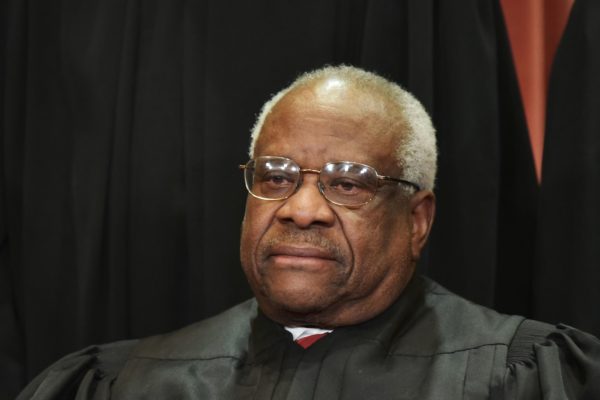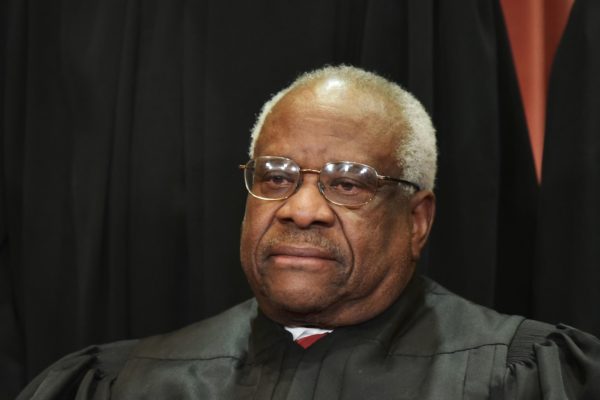Black GOP Figures Argue African-American History Museum Isn’t Honoring Clarence Thomas In Similar Manner to Thurgood Marshall
The National Museum of African American History and Culture isn’t doing enough to “honor” Supreme Court Justice Clarence Thomas, according to a group of Black Republican lawmakers in Congress.
Led by freshman Rep. Byron Donalds of Florida, the group is challenging the museum to highlight Thomas in a more prominent way. In a letter sent to the museum’s leadership, the group decried the current exhibit honoring Thomas as one which “falls short” of his accomplishments.

“This museum is a national treasure for our nation’s fabric — this is especially true for me as a Black American and Republican,” Donalds wrote. “Black History transcends political correctness and partisanship. Overall, the NMAAHC honors its mission, but it is unfortunate to see pitfalls likely driven by irresponsible bias.”
The letter was also signed by Sen. Tim Scott of South Carolina, Dr. Alveda King (a niece of Martin Luther King Jr.), Rep. Burgess Owens of Utah, Heritage Foundation President Kay Coles James and others.
Thomas, 72, was narrowly confirmed to the highest court in the land in 1991 after being appointed by President George H.W. Bush to replace Thurgood Marshall, the first Black person to serve on the Supreme Court. He is only the second Black person to serve as a justice on the court.
“As a Black man who has a profound respect for the contributions Justice Thomas has propitiated for generations to come, this museum must encapsulate his life as it does for hundreds of other monumental Black figures,” Donalds wrote, noting the museum’s current installation on Thomas doesn’t reflect his “achievements and life compared to his counterpart, the Honorable Justice Thurgood Marshall.”
Donalds added, “Black history cannot and should not be political,” and urged the museum to offer an “unbiased assessment” of Black historical figures.
Donalds did not elaborate on why he considers Thomas in any way close in stature to a giant of civil rights like Marshall, the lead attorney for the plaintiffs when the NAACP Legal Defense Fund successfully argued to overturn “separate but equal” laws in front of the Supreme Court in the historic 1954 Brown v. Board case.
This isn’t the first time the museum has come under scrutiny for its representation of Thomas. When it first opened in 2016, the museum was criticized for only mentioning Thomas as a part of its Anita Hill exhibit, mentioning her sexual harassment allegation against him.
The museum expanded Thomas’ prominence in a new exhibit in 2017, however, Donalds and his peers still don’t think it’s enough.
“As one of the only two Black men to serve on our nation’s highest and most distinguished court, US Supreme Court Justice Clarence Thomas deserves unbiased recognition from the National Museum of African American History and Culture,” Donalds told Fox News last week.
Donalds has also paid tribute to Thomas several times on Twitter, calling him a “stalwart figure in the American judicial system & history.”
The museum released a statement concerning the matter to ArtNet. “While all our exhibitions are based on rigorous research, they are still open to interpretation,” it reads. “Through scholarship, publications, and education, the museum will continue to explore the rich contributions and complexity of African Americans,” the museum’s statement read.

